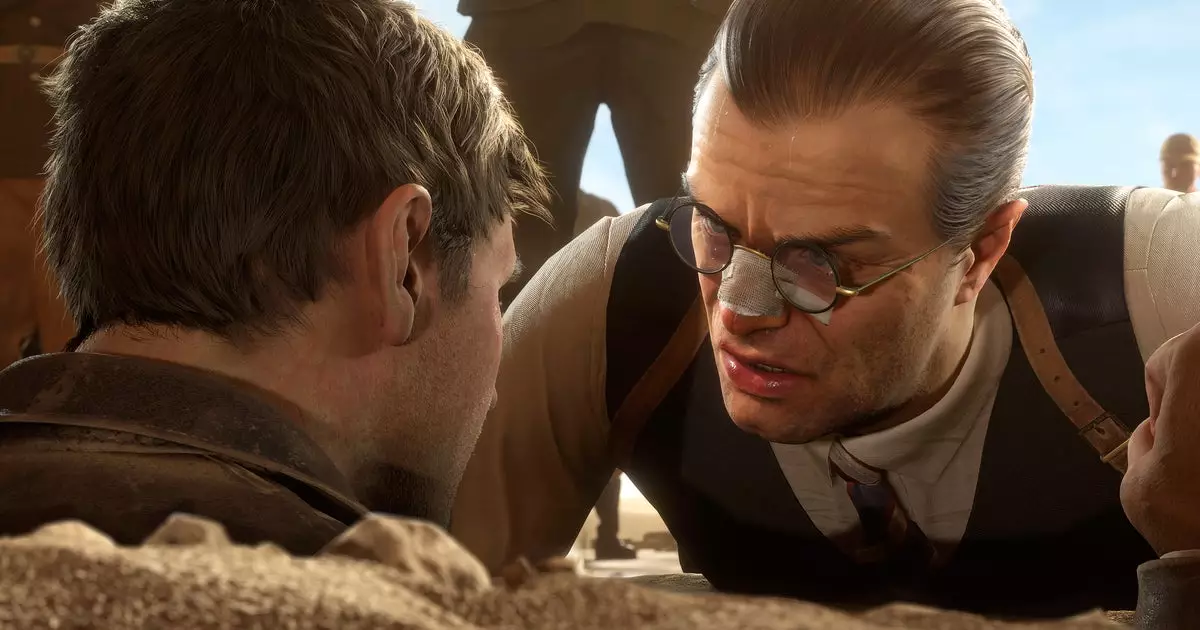In the world of entertainment, particularly video games, escapism plays a vital role. Players often seek refuge from their mundane realities, immersing themselves in narratives that allow them to confront dark themes from the safety of their sofas. However, when historical atrocities are mashed-up with fantastical escapism, the boundaries can become blurry. This questioning is particularly relevant in the context of the iconic character Indiana Jones. His battle against the Nazi regime in the 1930s and 1940s reflects a straightforward directive: oppose evil. Yet, how that opposition is framed in games like “Indiana Jones and the Great Circle” raises important questions about representation and responsibility.
Indiana Jones, portrayed as a rugged archaeologist, is often defined by his fervent dislike for the Nazis, exemplifying a hero who stands against tyranny. The famous line from “Raiders of the Lost Ark”—“Nazis? I hate these guys!”—reveals a clear-cut moral stance. However, it is also essential to recognize the complexities beneath the surface. Jones’s character engages with Germans within a fictional narrative that complicates the backdrop of war. For example, his brief fling with a Nazi sympathizer and his contrived impersonation of an SS officer for a mission can be viewed as questionable moral decisions. While Indiana’s actions generally underscore his disdain for the regime, they raise critical concerns about the implications of glamorizing otherwise problematic characters, even through satire.
With “Indiana Jones and the Great Circle,” the developers at MachineGames tread into treacherous water. By providing players with the chance to engage in violence against Nazi characters from a first-person perspective, there is an implicit risk of trivializing the very real atrocities committed by such regimes. While blasting and bludgeoning enemies might provide a sense of catharsis, it is crucial to consider the portrayal of Nazis in video games and the potential risk of inadvertently normalizing fascist iconography for entertainment purposes.
The introduction of a disclaimer at the start of the game indicates awareness of these pitfalls. Its insistence that the game does not condone Nazi ideologies, nor intends to glorify their actions, serves as a legal safeguard rather than an ethical one. However, this raises questions about whether players will absorb the intended message or simply view the portrayal as humorous, fitting into the larger trope of “Nazis as the ultimate bad guys.”
A Double-Edged Sword of Historical Representation
The disclaimer, while well-intentioned, may seem somewhat ironic given the context of the game. The event descriptions in “Indiana Jones and the Great Circle” are a stylized representation of history designed to appeal to gamers, yet they may also approach a realm where poetic license clashes with authentic representation. This poses a unique dilemma: should video games depict historical realities, or can they justify a radical approach as mere fiction?
The blend of factual history with fantastical elements can potentially build a convoluted understanding of the past. For instance, players may grow desensitized to the horrors depicted, thus blurring the line between entertainment and history. While many may be aware of the atrocities committed by Nazi Germany, the immersive experience could lead some to misinterpret the serious themes presented, mistakenly viewing it as a moral endorsement rather than a cautionary tale.
The Future of Historical Gaming
With the evolution of video gaming narratives, it becomes increasingly essential for developers to grapple with these dilemmas. As they venture into historical contexts laden with ethical concerns, more robust frameworks must be established to discourage the romanticization of actual historical villains. The paradox lies in portraying historical conflicts in a manner that remains respectful yet engaging.
As players prepare to navigate through the landscape of “Indiana Jones and the Great Circle,” a broader cultural exploration will emerge. The ultimate challenge remains: to provide an engaging experience that infuses social awareness and education without glorifying historical evils. Understanding this nuance could reshape the very definition of escapist entertainment, enabling gamers to confront, examine, and learn from our shared human history—a journey that may well define the future of the industry itself.


Leave a Reply